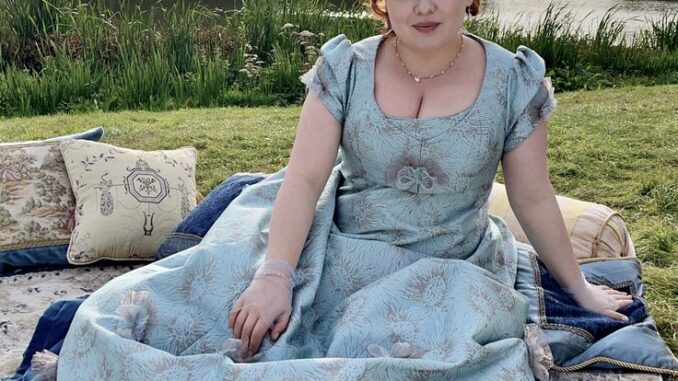
If Bridgerton Season 4 Doesn’t Keep the Book’s Time Jump, Benedict’s Story Won’t Make Sense The highly anticipated fourth season of Bridgerton has been confirmed to focus on the story of Benedict Bridgerton (Luke Thompson), and the book it’s being adapted from comes with a built-in time jump that would actually make sense for the second season of the Bridgerton baby. Following the established format of Julia Quinn’s Regency romance series, her book An Offer from a Gentleman follows one of the eight Bridgerton siblings as he finds love and fulfillment. Benedict’s arc will be the best yet if Bridgerton’s Rotten Tomatoes trend holds, with each new chapter only getting better reviews than the last.
The casting of Benedict’s soulmate/bride-to-be Sophie Baek, played by Dune: Prophecy actress Yerin Ha, has fans excited as the cast and crew begin prepping for the next season. However, as the Bridgerton TV show has done so far, Benedict and Sophie’s story will not only be about romance but also about their personal needs and character development. Conveniently, An Offer from a Gentleman includes a time jump that Bridgerton season 4 had to keep in order to avoid undermining Benedict’s character arc up until now.
In An Offer from a Gentleman, Benedict first meets Sophie, the illegitimate daughter of an earl who was forced into slavery by his stepmother, at his mother’s masquerade ball. The pivotal event in Benedict’s timeline is alluded to in the Bridgerton season 3 finale when Benedict and Eloise (Claudia Jessie) mention that they will reunite at Violet’s (Ruth Gemmell) famous high society event. While Benedict promises that he will again “avoid eligible girls like the plague”, this is a big night for him when he meets a mysterious young woman obscured by a mask whom he calls “The Lady in Silver”.
Although the novel focuses heavily on their inconvenient separation, this period in particular is crucial to Benedict’s character.
Elements from the classic Cinderella story are clear; when Sophie escapes as expected, Benedict becomes determined to find her again (despite his earlier assertion that he is not interested in marriage). However, two years later the couple meet again, at which point Benedict does not realise she is the same woman. Although the novel focuses heavily on their inconvenient separation, this period in particular is crucial to Benedict’s character; It would also speed up Francesca’s (Hannah Dodd) timeline in relation to her first marriage before her next romantic arc.
Benedict’s arc in season 3 actually ends with him saying he’s not ready for marriage, for a number of good reasons. This season sees Benedict embark on an affair with the widowed Lady Tilley Arnold (Hannah New); after they’ve been together for a while, her invitation to a threesome with her and her friend Paul (Lucas Aurelio) proves to be an eye-opener for Benedict. It signifies something much larger in Benedict’s quest for freedom in a stratified society, epitomised by Tilley’s earlier argument with him about how narrow-minded many of their peers’ worldviews are.
Ironically, shortly afterwards, Tilley says she has serious feelings for Benedict and suggests a monogamous arrangement. Benedict rejects her because he still wants to explore his sexuality, saying that Tilley and Paul have shown him “what a wonderful sense of freedom”; and that Tilley “opened up [his] world” and he “isn’t ready to close it down just yet”. However, Benedict’s claim that he wants this is severely undermined by the fact that he falls madly in love just months after rejecting a woman he actually had a connection with. Fortunately, An Offer from a Gentleman takes place two years before his actual relationship with Sophie, giving him time to have a few more relationships. Tilley advises him that he should still consider committing later, which most viewers know will happen. However, Bridgerton makes the previous relationships satisfying by allowing the individual personalities to be as important as the couple. While Benedict has spent a lot of time as a carefree bachelor, his recent revelation about himself needs to be watched for its full impact.
Benedict spends much of Season 3 questioning what freedom means to him: first arguing that marriage promises freedom from the obligations of the marriage market; then thinking that it means the ability to throw out the rules and embrace new life lessons. Also, Benedict doesn’t seem to have painted since leaving art school. Sophie might be able to convince Bened